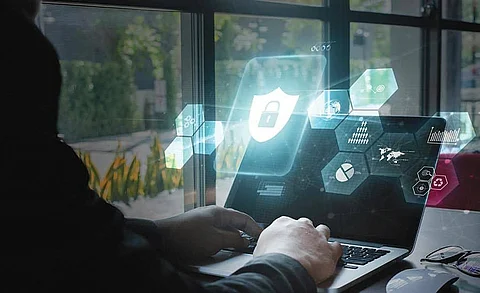
- Insights
- Cryptocurrencies
- Stocks
- White Papers
- Industry
- Geography


Technology has brought countless benefits to the way we live and how we interpret the world. Scientists across different fields are using AI-powered tools in conducting field work, lab analyses, and clinical studies. Research work and technology go hand-in-hand when it comes to improving lives. However, much like everyone else who uses the internet, scientists are just as vulnerable to cyberattacks.
It's for this reason that institutions like Purdue University encourage new ways for countering cyber threats. There is always the risk of sensitive data leaking out, so research teams will need to be careful when gathering, storing, and transferring data. Whether it's a foreign country looking to steal data or a virus that could corrupt devices and wipe out years of research data, it's important for research teams to invest in better defenses against such scenarios. Here's how they can protect themselves from hacking and other threats:
Cloud computing allows you to save data offsite, allowing you to secure and back up your research files without storing them on a physical device. This allows you to recover copies of your files in case your devices are corrupted or damaged. AI-enabled cloud systems also provide an additional layer of security by assessing risk exposure and detecting threats. This allows you to secure sensitive research files and data. These types of systems can also help with processing and sifting through large amounts of data to identify threats.
Passwords, usernames, and security questions are the first lines of defense against unauthorized access, which is why it's inadvisable to use login information that's easy to remember. You may be tempted to use your birthday as your password, but hackers are using sophisticated tools to guess passwords based on your personal information at breakneck speed. It's always good practice to come up with complex passwords and other login credentials. They may not be easier to remember, but they can make it much more difficult for cybercriminals to force their way in.
If you are doing field research, you might find it convenient to sit down at a cafe or public library to encode data or send documents to your team. However, the trade-off to this is that you are rendering yourself open to hackers who specialize in hijacking Wi-Fi signals and intercepting your communications. You may have to activate data encryption on your device and install anti-malware programs, especially if you are accessing private accounts and sending files to contact or other institutions. For added security, consider turning on two-factor authentication and avoid accessing unsecured websites and knowledge bases. If you are always working in the field, you check out inVPN to find a VPN service that's ideal for your remote work.
Cybersecurity is crucial in the scientific community, so it's imperative for researchers to know if they are doing enough to keep themselves safe from prying eyes.
